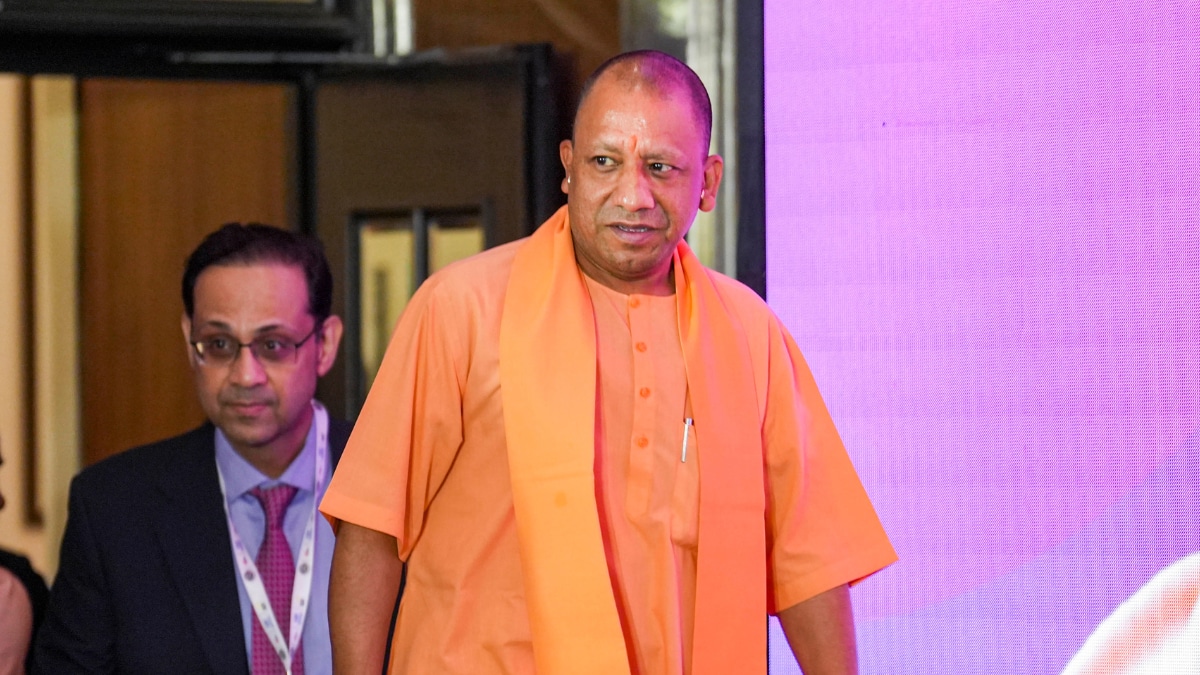UP chief minister Yogi Adityanath. (File photo)
According to officials at Invest UP, the agency established to foster investment and industrial development in the state, the Yogi Adityanath government is actively working to bring these proposals to fruition, ensuring a smooth transition from planning to execution
Months after the approval of Uttar Pradesh’s Semiconductor Policy 2024 to promote investment in chip manufacturing, the state has received proposals for projects totalling Rs 40,038 crore, which are poised to create over 32,000 jobs.
Among the notable companies investing under this policy are Tarq Semiconductors Pvt Ltd, Kaynes Semicon Private Limited, Aditech Semiconductor Private Limited, and Vama Sundari Investment Delhi Private Limited.
Tarq Semiconductors Pvt Ltd is set to invest approximately Rs 28,440 crore, with the potential to create around 11,000 jobs. Kaynes Semicon Private Limited plans an investment of Rs 4,248 crore, aiming to generate employment for about 12,000 individuals.
Similarly, Aditech Semiconductor Private Limited has proposed an investment of Rs 3,751 crore, which is projected to create 5,500 jobs. Vama Sundari Investment Delhi Private Limited is planning an investment of Rs 3,599 crore, expected to create around 3,780 jobs.
The UP Semiconductor Policy provides an additional capital subsidy of 50 per cent on the capital subsidy approved by the central government, alongside a 5 per cent per annum interest subsidy on investments up to Rs 200 crore. These incentives are designed to attract global investors and facilitate the establishment of semiconductor units in the state, thereby positioning UP as a central hub for the semiconductor ecosystem.
The semiconductor policy addresses a wide range of industry aspects, encompassing both materials and manufacturing processes. This includes compound semiconductors like Gallium Nitride (GaN), Silicon Carbide (SiC), and Gallium Arsenide (GaAs), alongside silicon photonics devices and integrated circuits. Additionally, it covers critical manufacturing activities such as Assembly, Testing, Marking, and Packaging (ATMP), Outsourced Semiconductor Assembly and Test (OSAT), Application-Specific Integrated Circuits (ASICs), Micro-Electro-Mechanical Systems (MEMS), and sensor production.
According to officials at Invest UP, the agency established to foster investment and industrial development in the state, the Yogi Adityanath government is actively working to bring these proposals to fruition, ensuring a smooth transition from planning to execution. Manoj Kumar Singh, Chief Secretary and Infrastructure cum Industrial Development Commissioner (IIDC) of UP, emphasised that the incentives, subsidies, and facilities provided under the policy are significantly contributing to investment and job creation in this sector.
Sunil Kumar Sharma, Minister for Information Technology and Electronics, Government of UP, highlighted the state’s efforts to create an ecosystem for developing IT hubs and focusing on semiconductor manufacturing with a Rs 40,000 crore investment.
Chief minister Yogi Adityanath emphasised the state’s commitment to providing all necessary support to investors, stating: “The semiconductor policy is a testament to our dedication to creating a conducive environment for technological innovation and industrial growth in Uttar Pradesh. We are focused on facilitating seamless investment processes and ensuring timely approvals for projects.”
The state government is also working to ensure the availability of adequate land and infrastructure for these projects, maintaining coordination with the central government and relevant stakeholders to expedite the implementation of this policy.







